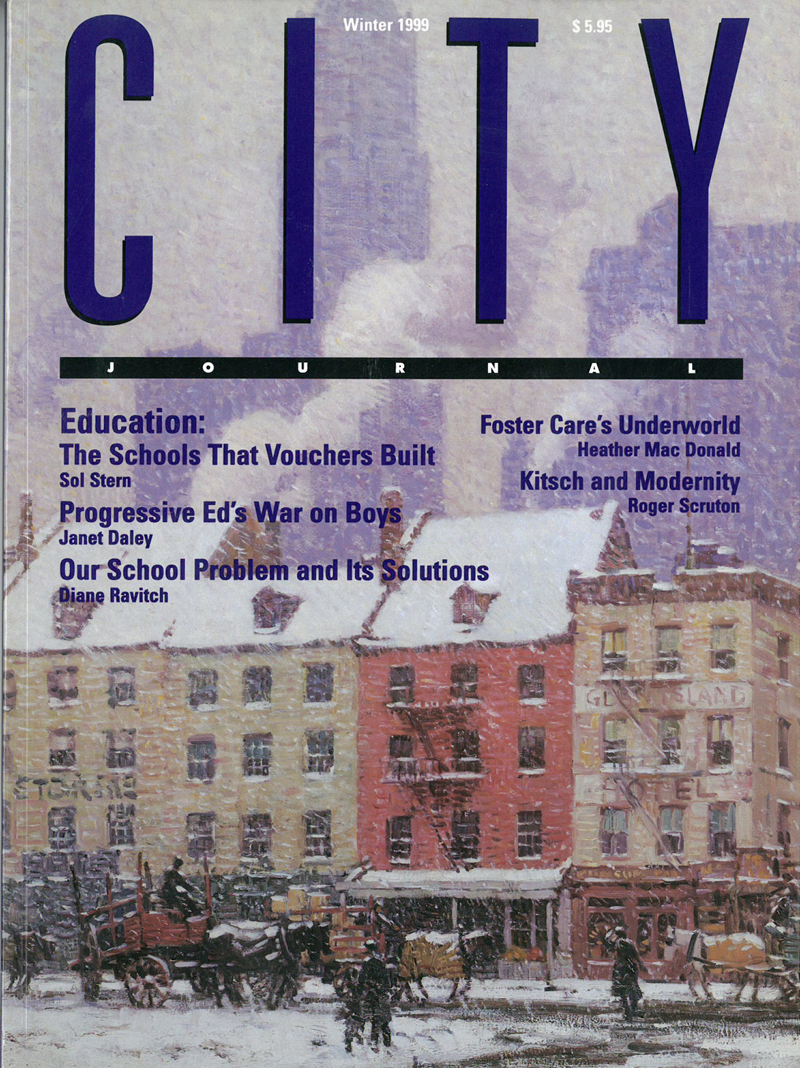On a sunny November Saturday, when I showed up at Columbia University to give a speech, I learned that our sponsor had canceled my talk and five others. This announcement came from one of the five security men blocking the entrance to Faculty House—more security than seemed needed if the speeches weren't happening.
Accuracy in Academia (AIA) had brought the six speakers, including author Dinesh D'Souza and SUNY trustee Candace de Russy, to campus. The Columbia cops at first couldn't explain why the group would cancel its own speakers after months of planning. But prodded, they revealed that the speakers were off campus on Morningside Drive.
As I walked up, D'Souza was calmly finishing his talk. Protesters yelled about racism and tried to drown him out. One protester recognized me and silently mouthed the words, "I'm sorry"—sorry that supporters of race and gender preferences had set out to drive the conservative speakers off campus and, with Columbia president George Rupp's help, had succeeded.
Our speeches were to be the second half of a two-day event entitled "A Place at the Table: Conservative Ideas in Higher Education," which opened with a dinner talk by Ward Connerly, leader of successful anti-affirmative-action referenda in California and Washington State. Letters to the campus newspaper warned that "racists" were coming, so 250 protesters arrived at Faculty House to denounce Connerly as an Uncle Tom. One demonstrator suggested that the crowd storm the building. Nobody did, but university officials expressed deep concern about the safety of Saturday's speakers.
This concern pushed the six speakers off campus. Officials said they had no idea that AIA had invited students from other colleges. What if 500 people, some of them perhaps disruptive, showed up to fill a 200-person hall? A Friday night hand-wringing session at President Rupp's home ensued.
Did the university move the event to a larger hall, or simply let the speakers address the crowd in Columbia's huge quadrangle? No. That would make too much sense. Instead, Rupp authorized cops to shrink the Faculty House crowd by banning everyone without Columbia I.D.—which meant turning away non-Columbia invitees, many of whom had paid for tickets. Concluding that the administration was just jerking them around, AIA said no thanks, and moved the talks to Morningside Drive.
For its part, the administration suggested that AIA acted irregularly by not clearing its program with university officials or finding a sponsor among approved student groups—an updated version of the "outside agitators" reaction to unwanted ideas. Faculty House's director responded that his building is a public facility and had rules that forbade screening based on a renter's philosophy. The demonstrators knew that censorship had just been imposed. Said Roxanne Smith, president of the Black Students Association: "I thought it was great. They were entirely dislocated."
This is mainstream opinion on campus these days: you show distaste for intellectual opponents by blocking speeches and stealing newspapers, not by debating with them. Freedom of speech has no value. Today's students' belief that some ideas are so awful that they deserve suppression comes from sixties guru Herbert Marcuse's notion of "repressive tolerance," as Alan Kors and Harvey Silverglate show in their book, The Shadow University. Students shouldn't be exposed to "spurious neutrality," Marcuse thought, but instead trained in progressive ideas—which meant silencing non-progressive ideas. The modern university happily complies.
Columbia's action—using safety concerns to squelch unwanted speech—is a sophisticated version of the heckler's veto. Great universities don't behave this way. If Columbia wants to retrieve its honor, it should make sure that the conservative speakers are invited back. If it doesn't, the lesson is clear: unpopular speakers can be driven off campus—with administration connivance.
